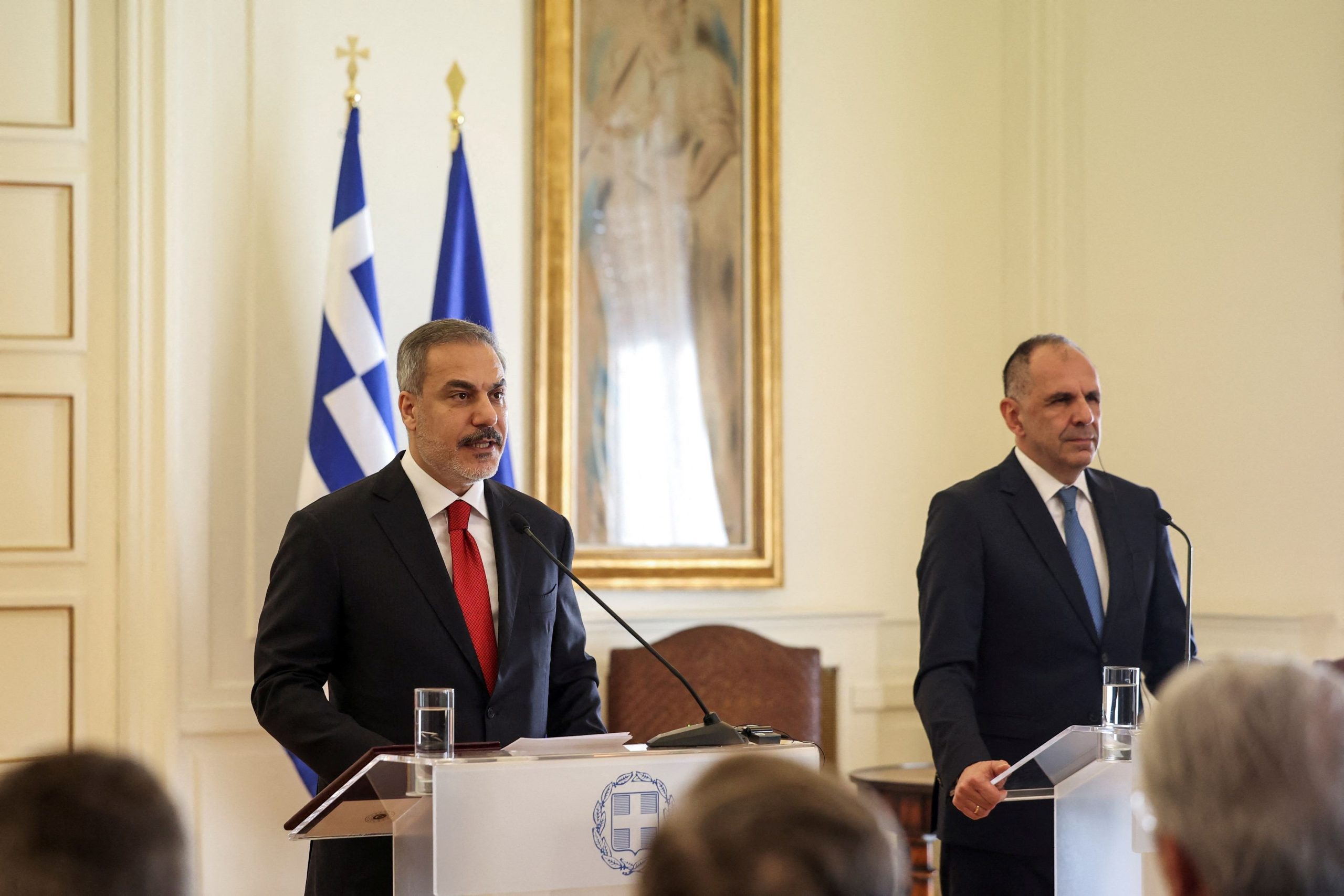Turkish Foreign Minister Hakan Fidan returned to full throttle “revisionist mode” during an interview with a local television network this past week, saying there’s “more than one problem” in the Aegean.
The latter position has been steadfastly rejected over the past decades by successive Greek governments, which maintained that the only difference needing resolution is delineating of the sea’s continental shelf – and more recently, a delimitation involving the expanded sovereignty concept of an Exclusive Economic Zone (EEZ).
In televised statements a week after he arrived in Athens for a lightning visit and talks with his Greek counterpart, Giorgos Gerapetritis, Fidan regurgitated Turkish positions charging a “militarization of islands; (isle) formations whose status has not been clarified; territorial waters and airspace.”
“We can proceed with those issues after first making the initial description,” Fidan added, in comments squarely directed at a domestic audience.
“The problem is the militarization of islands, which must be demilitarized; the continental shelf, territorial waters, places whose status has not been clarified, airspace, the EEZ. There are many issues. These issues, once we get the description right, we can proceed in the right way to resolve them. We need to see how a different approach can be taken, looking, of course, at previous efforts. If this possibility exists… Instead of just describing the problems, we should reach higher, and as our president says… as for the Aegean Sea, which is a wonderful environment, we want to turn it into a paradise that serves the prosperity, security, peace and happiness of the two countries – with political and military agreements that we will sign.”
Previously strained to frigid bilateral relations between Athens and Ankara first “thawed” in the wake of election victories by both Turkish President Recep Tayyip Erdogan and Greek PM Kyriakos Mitsotakis last year and then moved towards rapprochement followed by meetings at all levels – ones aimed at generating progress and cooperation in various sectors.
Between 2020 and 2023 the Erdogan administration had exhibited a belligerent and aggressive stance against fellow NATO member Greece, at one point, in fact, facilitating the attempted mass incursion of thousands of third country nationals living in Turkey into Greece from the Evros land border. That attempt was thwarted by the Greek side, with the Covid pandemic then ending tension along the border.
Athens has flatly dismissed, and at times sharply ridiculed, official Turkish positions regarding the demilitarization of the eastern Aegean islands. Most importantly, the Greek side has pointed out that repeated Turkish military action, threats and belligerence over the past decades make defense of territory paramount, as per the UN Charter’s Article 51 regarding states’ individual and collective self-defense. The latter conviction is presented when Ankara cites the 1947 Paris peace treaties and a provision for annexation of the Dodecanese islands by WWII victor Greece. Another provision in these treaties cites the demilitarized status of the specific islands.
Turkey was not a signatory of the specific treaty.
The Greek side has also repeatedly and vigorously cited the legal point of no connection in international law between sovereignty and demilitarization, with the concept of national sovereignty enjoying full and never conditional status.
Greece also maintains a six-nautical mile limit in the Aegean Sea but has strenuously repeated that it retains the right to extend territorial waters to 12 nautical miles, in line with UNCLOS, an international treaty signed and ratified by EU member-states, and most of the countries in the world.
Turkey is a notable exception, with successive governments since the mid 1990s periodically threatening a “cause for war (casus belli)” – emanating from a resolution passed by Turkey’s grand assembly – in case Athens exercises its legal rights.




